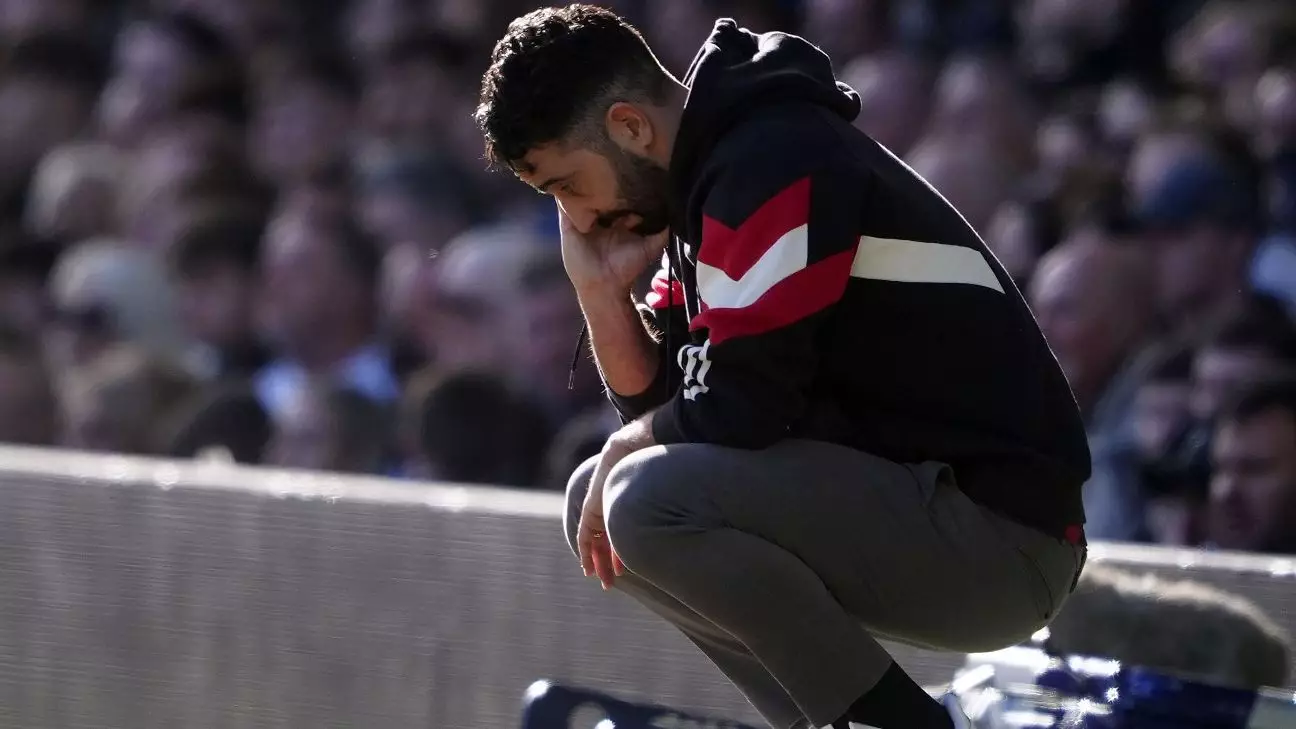Manchester United’s recent struggles on the pitch have prompted head coach Ruben Amorim to express significant concern regarding the team’s performance, particularly their tendency to start matches at a sluggish pace. The team’s latest outing against Everton highlighted these issues vividly; despite a commendable comeback from a 2-0 deficit at halftime to earn a 2-2 draw, the disparity in the team’s first-half performance raises critical questions. United’s ability to only muster one first-half goal in their last eleven Premier League fixtures is a troubling statistic that reflects both tactical and psychological deficiencies.
During the match at Goodison Park, United suffered an uncharacteristic defensive lapse that allowed Beto and Abdoulaye Doucouré to score early goals for Everton. These goals emerged from what Amorim described as “soft” defending, particularly in situations involving second balls—a critical aspect often overlooked but essential in competitive football. The visitors’ inability to establish control or maintain possession in the first half made them vulnerable, leading to a situation where they were forced to chase the game.
However, the second half showcased a different mentality from the United players, punctuated by Bruno Fernandes’ well-executed free kick, followed by Manuel Ugarte’s first goal for the club. The momentum appeared to shift slightly; the conviction and energy that were absent in the first half surfaced against Everton, hinting at the potential in the squad that seems unfulfilled.
Post-match, Amorim openly acknowledged the ongoing challenges that his squad faces. His frustration was palpable, especially as he remarked, “We did not exist in the first half… we were soft.” This sentiment reflects a crucial area of concern not only for Amorim but also for the team’s fans, who are weary of witnessing their club languish in the lower half of the league table. At present, United finds themselves in the precarious position of sitting 15th, winning only one of their last five league games. The need for a transformative solution remains a pressing issue.
Amorim’s admission of uncertainty regarding solutions to the team’s woes underscores a precarious situation—his candidness reveals the stark reality of managing a club in crisis. “If I knew, I would change it,” he stated, indicating the depth of the challenge at hand. The immediate focus, according to Amorim, is to “survive this season,” a statement that reflects desperation but also a gritty pragmatism in the face of adversity.
Looking ahead, United’s schedule includes a match against Ipswich Town followed by an FA Cup fifth-round clash with Fulham. These upcoming fixtures will offer the team a chance to regain some much-needed momentum and confidence. A strong performance could serve as a catalyst to uplift spirits and potentially alter the trajectory of their tumultuous Premier League campaign. The spotlight now must remain on improving not just tactics but the mental and emotional resilience required for top-flight football, as Amorim seeks a turnaround amidst the chaos.

